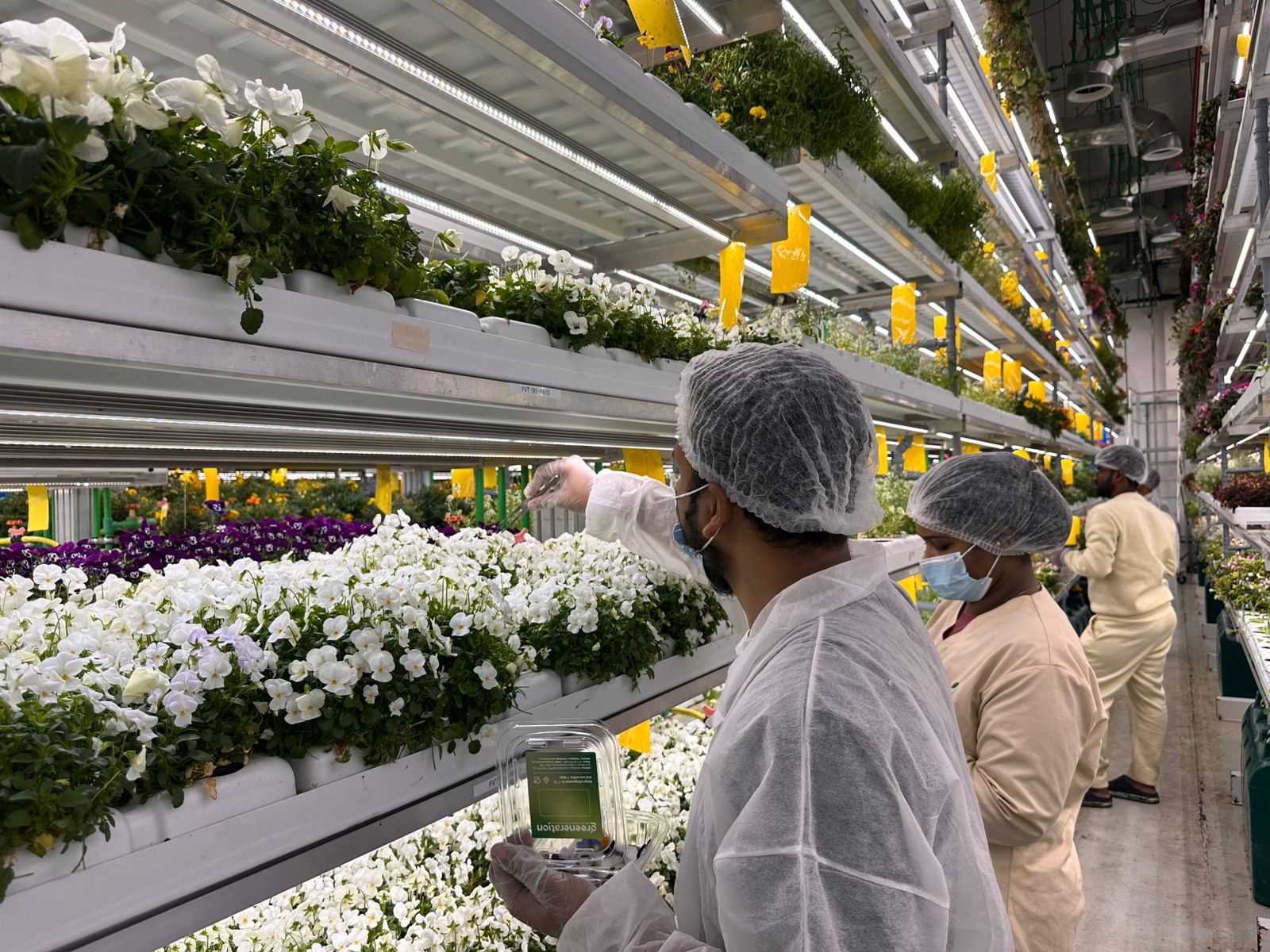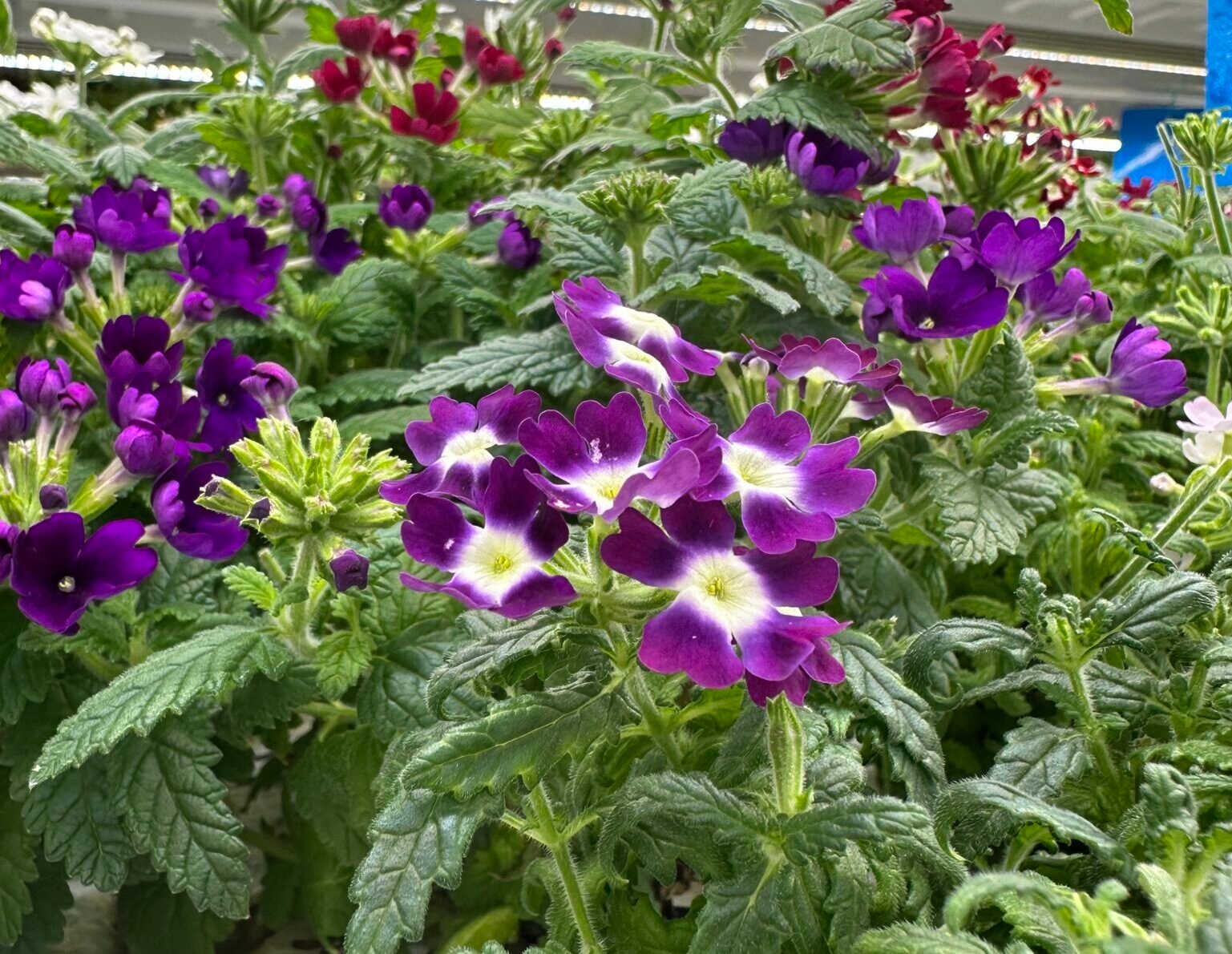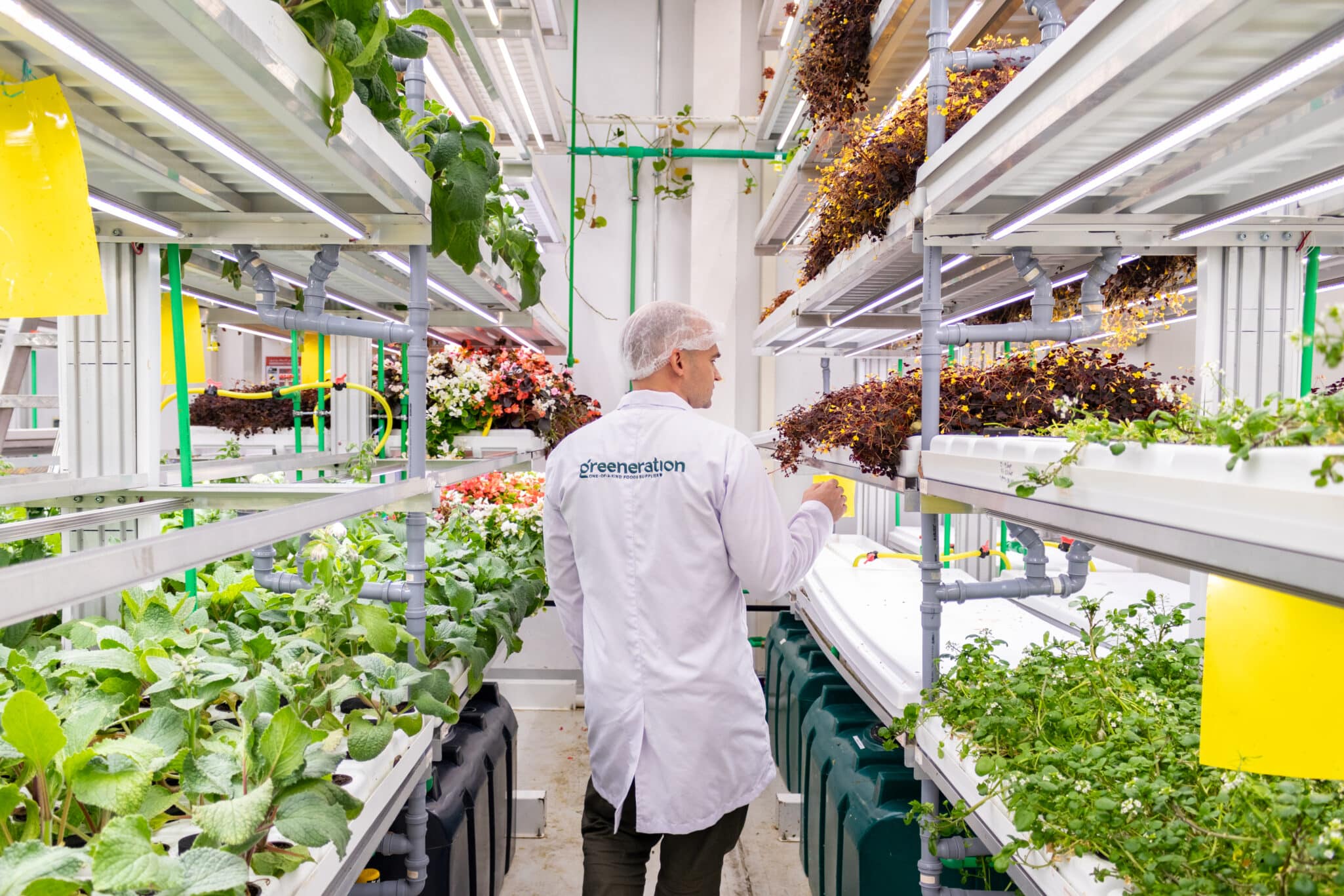Key Takeaways:
- Greeneration operates a high-end vertical farm in Dubai focused on edible flowers, microgreens, and specialty leaves for premium HoReCa (Hotel, Restaurant, and Café/Catering).
- The facility uses full-spectrum white LED lighting to support both plant quality and workplace visibility.
- Environmental control systems are adapted to meet the challenges of the UAE’s climate.
- Precision nutrient and water management strategies are used to support a wide range of flower species.
- The farm supplies freshly harvested produce to chefs across the city within a short timeframe.
A Closer Look at Greeneration’s Vertical Flower Farm
Greeneration is a vertical farming company based in Dubai, producing edible flowers and microgreens tailored to the hospitality and food service sectors. The facility is designed to deliver same-day harvested products to chefs across the UAE, focusing on freshness, consistency, and visual appeal.
Founded by Roman Ulyanov, the company cultivates dozens of varieties using hydroponic systems in a controlled environment. During a recent visit, members of the agronomic team and Daria Shchurik, Head of Marketing & Growth, provided insights into the technical decisions shaping the farm’s operations.
Lighting Design: Full-Spectrum LEDs for Practicality and Performance In The Vertical Flower Farm

Unlike red-blue LED systems common in controlled-environment agriculture, Greeneration employs full-spectrum (white) LED lighting. According to the agronomic team, this choice supports multiple goals, including maintaining a comfortable and functional work environment.
“The light quality is much closer to natural sunlight, making it significantly easier for our team members to work comfortably,” said Daria Shchurik.
The team noted that visual assessment of crops—important for harvesting and quality control—is more practical under full-spectrum lighting. Crop performance under this setup was reported to be comparable to outcomes under red-blue lighting, with no major differences observed in flowering quality or morphology.
Environmental Control Adapted to Local Conditions
Operating a vertical farm in the UAE requires robust systems to maintain consistent indoor conditions. The agronomic team outlined their approach, which includes high-capacity air conditioning, dehumidifiers, and specialized ventilation equipment.
“We use more robust climate control equipment here than in our Moscow operations, but the protocols are otherwise similar,” said the Head of Agronomy.
These systems help maintain a stable growing environment regardless of outdoor heat or humidity, which is especially important for flower varieties sensitive to environmental variation.
Nutrient Management and Water Quality Control

Water quality is managed through a reverse osmosis (RO) system, which removes variability from the local supply. The agronomic team described a nutrient management system that adjusts fertilizer recipes based on plant development stages and species-specific requirements.
“As We grow dozens of varieties, we have to adjust our nutrient recipes to match their specific developmental needs.”
This flexible approach helps support crop uniformity, flower density, and durability across a diverse crop portfolio.
Pollination Not Required for Non-Fruiting Varieties
Because the farm focuses on non-fruiting flower crops, pollination—either manual or by insect—is not part of the production process.
“Pollination is not required for our varieties, as we are focused exclusively on non-fruiting flowers,” said a representative from the agronomic team.
This simplifies production and reduces the complexity typically involved in managing flowering stages.
Business Model: Focused Production and Operational Adaptability
Greeneration’s vertical farming model is structured around the cultivation of high-value, specialty crops with an emphasis on timely distribution. The company supplies edible flowers, microgreens, and specialty leaves primarily to the hospitality and food service sectors. The core principle of the high-end vertical farm is “Local for Local” where they strive to substitute the imported premium ingredients that are still prevalent on the market.
Greeneration has brought to the market unique crops like Kitsune Leaves, Oxalis Green and Ice Plant that had been previously exclusively imported from abroad. This adds to the national food security effort, introduces more locally-grown premium ingredients for Dubai’s fine dining scene and contributes to the UAE’s Net Zero goal.
A modular farming system supports this model by enabling production adjustments based on client preferences, order volumes, or specific crop characteristics. Environmental controls and tailored nutrient delivery systems are used to help maintain consistency across a wide variety of plant types.
“Flexibility in system design has allowed us to adapt quickly to different crop requirements and respond to market demand.”
Concludes Daria Shchurik, Head of Marketing & Growth at Greeneration


